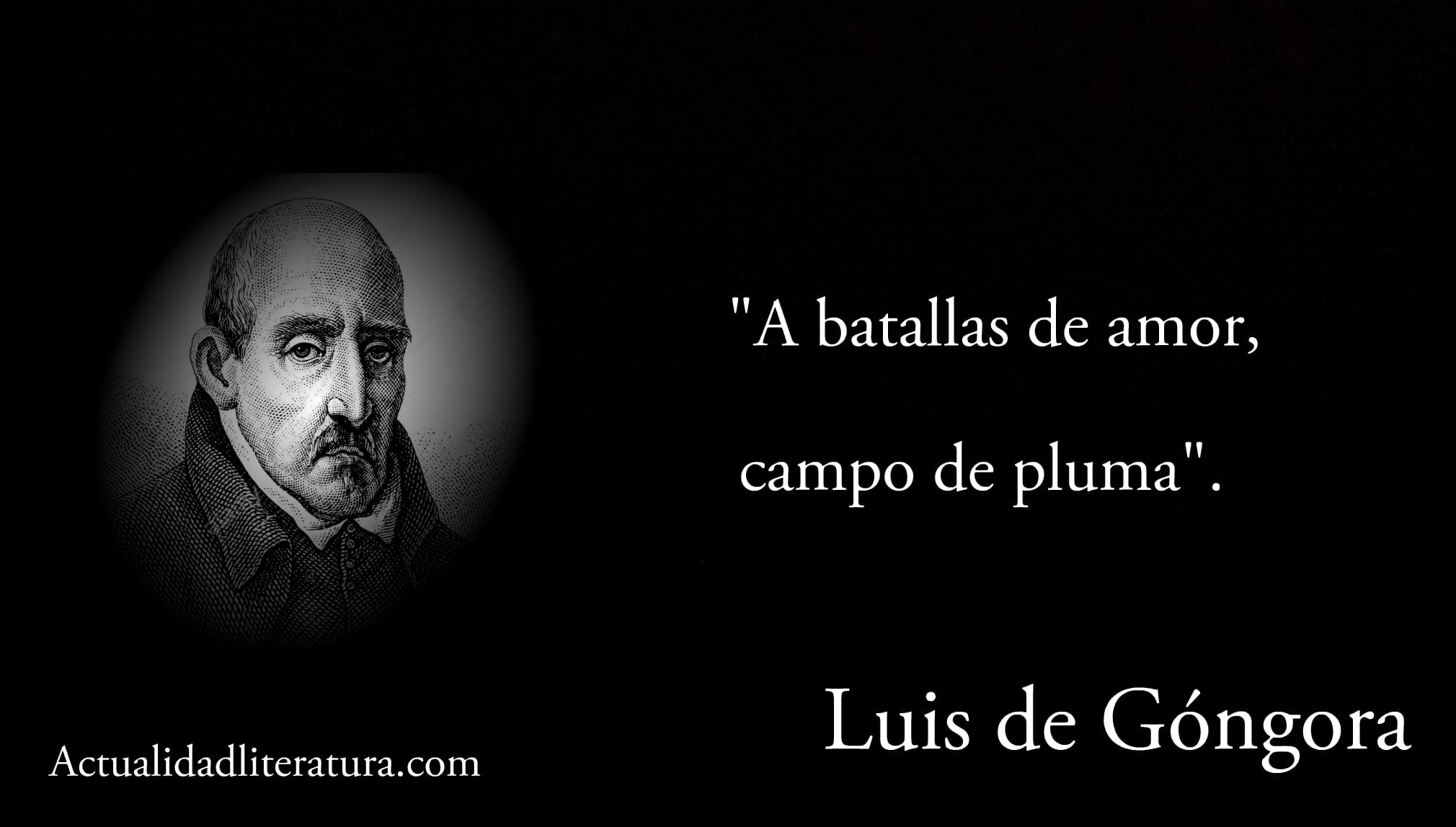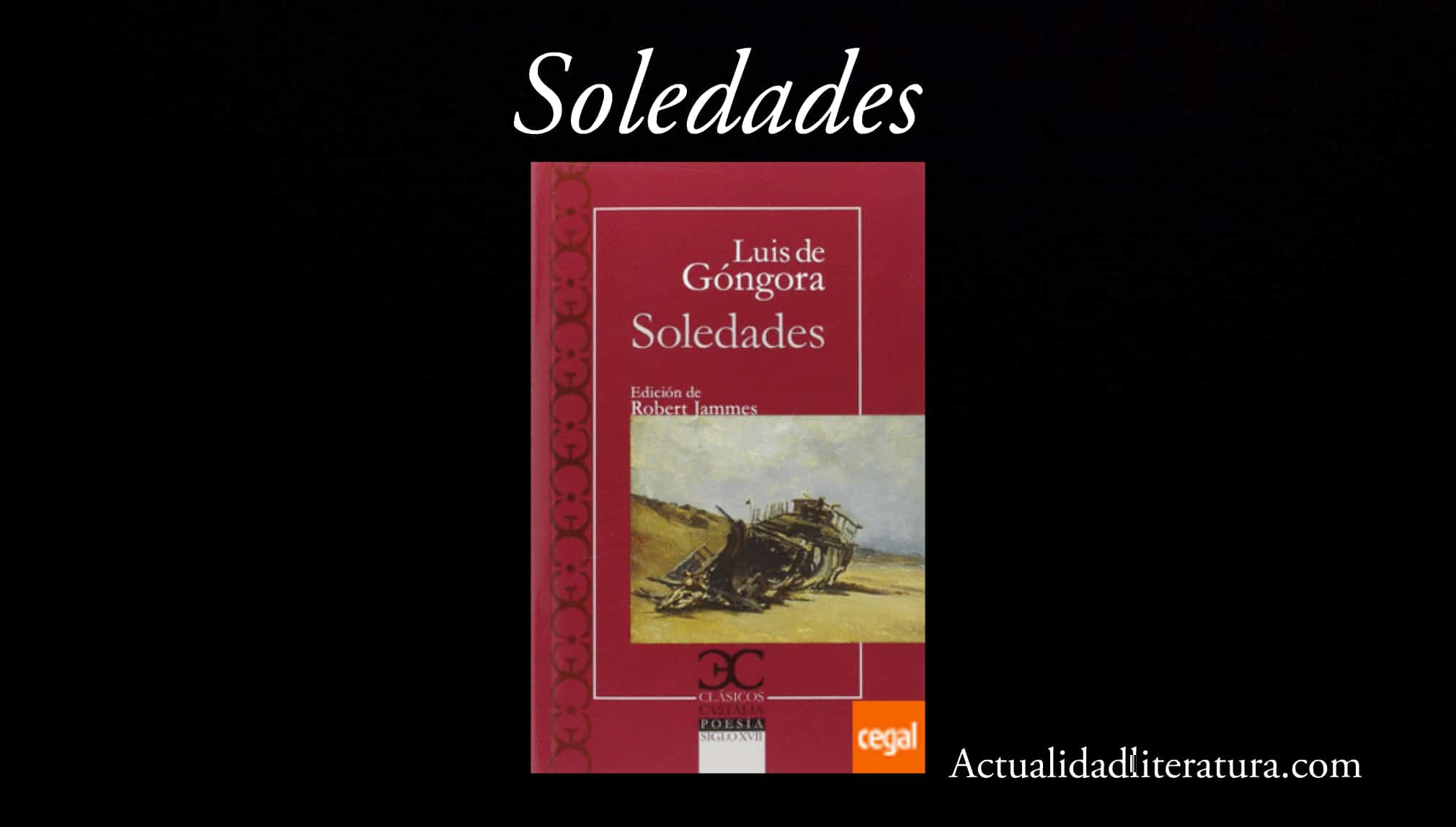
Phrase by Luis de Góngora.
Luis de Góngora (1561 - 1627) was an outstanding poet and playwright, as well as one of the most important representatives of the Spanish Golden Age. Today he is recognized as the greatest exponent of culteranismo, literary current that is alternatively called gongorism. His poetic work is characterized by being intrepid and, at the same time, worldly.
Likewise, his language is considered one of the brightest beacons in the evolution of contemporary "Spanish-speaking poetry". Thus, his work has been classified as "the two faces of the same mirror", where light and darkness have a similar origin in their different writings.
Luis de Góngora: a life between letters
Luis de Góngora y Argote was born on July 11, 1561, on Calle de las Pavas in Córdoba, Andalusia. He was part of one of the most wealthy and conservative families of the time on the banks of the Guadalquivir, in fact, his father was a judge of property confiscated by the Holy Office.
Early years marked by a strong Catholic tradition
The young Luis got to take minor orders until reaching the degree of canon of the cathedral of his native city. Also, He achieved great prestige by occupying the position of Royal Chaplain in 1617 during the mandate of Felipe III. Which, led him to live until 1626 in the court of Madrid to be able to exercise the functions inherent to his title.
Later, he traveled in different commissions of his council throughout practically all of Spain. He takes advantage of these expeditions to frequently pass through his native Andalusia. In the same way, he assiduously visited Jaén, Navarra, Castilla, Cuenca, Salamanca and many nooks and crannies of the current Community of Madrid.
Enmity with Quevedo
One of the most commented chapters on the life of this poet and playwright was his enmity with Francis of Quevedo. According to Góngora, his "colleague" for a time (when they met at the Court of Valladolid) dedicated himself to imitating him. Moreover, Luis de Góngora went so far as to affirm that he did not even do it openly, but through a pseudonym.
The beauty of his poems
Two of his works appear among the most representative of universal poetry in Spanish. This thanks to the complexity they enclose in themselves Loneliness y The Fable of Polyphemus and Galatea. Both causes of much controversy in their time - not only because of the originality of their ornate metaphors - mainly due to their indecorous, rude and insolent tone.
Therefore, His unappealable satirical streak was always present throughout all his writings. Accompanying him from those first strokes such as the writing of the poems dedicated to the tomb of El Greco, Rodrigo Calderón and The Fable of Píramo and Thisbe. In addition, his poetic creation stands out for the characteristics mentioned below:
- Constant use of unusual baroque hyperbole.
- Frequent use of hyperbatones with parallel developments.
- Extremely far-fetched vocabulary.
"Major and" minor "works
His poetic work is grouped into two blocks: major poems and minor poems. Among them, romances abound like that of Angelica and Medoro, whose mischievous, lyrical and even personal tone of the narrator deeply permeates this well-known piece of literary inspiration.
The manuscripts of Luis de Góngora
Luis de Góngora never published any of his works in his lifetime; they were only manuscripts passed from hand to hand. Which included songbooks, romance books and even anthologies, many times published without his permission. On one occasion - in 1623 - he tried to formally publish part of his work, but gave up the attempt.
One of the texts whose dissemination he did authorize was the so-called Chacón manuscript, transcribed by Antonio Chacón for the Count-Duke of Olivares. There, clarifications by the hand of Góngora himself were included along with the chronology of each of the poems.
Between letrillas and sonnets
Additionally, Góngora was a faithful exponent of satirical, religious and lyrical lyrics, as well as the sonnets with a burlesque touch. The style of the latter subtly mixed controversial stories, love affairs, and philosophical or moral discussions. Some had funereal motivations, but rarely renouncing satire.
Despite the above, the search for high aesthetic values was part of his concerns. For the aim of most of the letrillas was to make fun of the so-called begging ladies. Apart from attacking that deep longing for the unattainable or the desire to obtain exorbitant wealth. Unlike the older poems, whose motive was focused on promoting a culteran revolution.
All the Solitudes

Solitudes.
You can buy the book here: Solitudes
This is perhaps the most imaginative work in its catalog. All the loneliness it is a challenge to human intelligence, the cause of countless controversies at the time. Its content presents a convoluted idealization of nature, assuming a work that represents the culmination of the "gongoresque" style.
Moreover, his aesthetic "daring" was the cause of a great scandal due to his profile as a "hyper-cultured" man. In addition, the debate was spiced up by the background of a suggestively homosexual theme. That is to say, once again the Andalusian writer pushed the social conventions of his time to the limit.
End of a story, the beginning of a memory
The last days of Luis de Góngora did not honor the life of a man who — only with manuscripts — had a significant influence on Castilian letters. The causes: the greed of some of his relatives and senility problems mercilessly combined to leave him mired in misery.
A legacy "saved by the adversary"
His work, unfinished in many cases and unpublished, was in real risk of being lost in the confines of oblivion. Paradoxically, the constant conflicts with Quevedo initially made it possible to rescue and safeguard his legacy. Because of this "quarrel" there was a lot of written paper left for posterity.
The "war of satires" unleashed between the two served to show a jovial man and lover of the good life. In addition, Luis de Góngora is described as a fervent passionate about bullfighting and playing cards. The latter earned him the disapproval of his first guides, the ecclesiastical hierarchs.
Necessary claim
At present, his poems and his literary work in general - including their inclusion in the dramaturgy - are recognized with their deserved importance. Y, Although the author could not see him in life, his writings are published with great frequency. Just as it should.